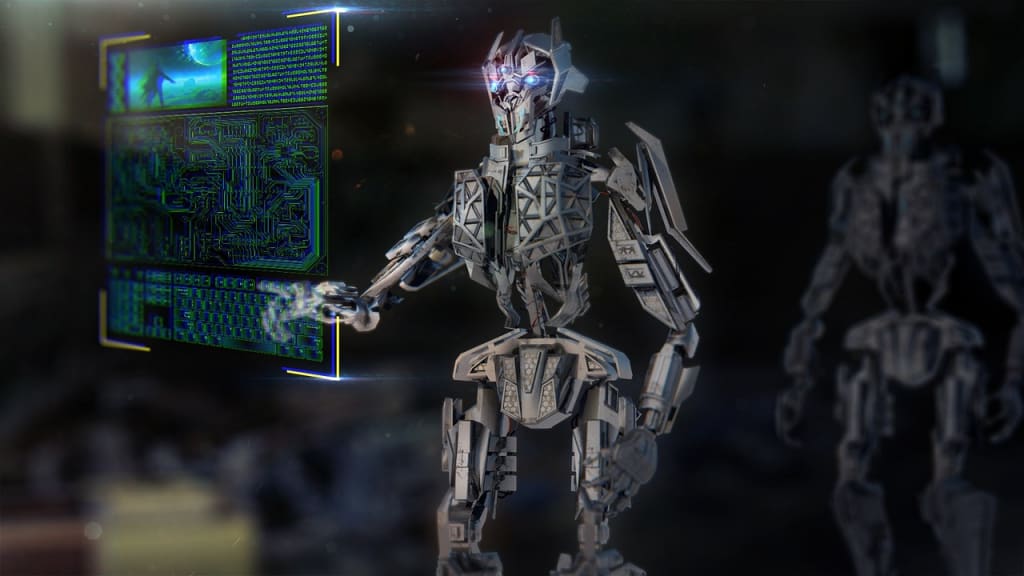The Future of Work: How AI is Changing the Job Market
Future of AI in market

The advancements in artificial intelligence (AI) are transforming the way we work and the jobs we perform. AI is making inroads into almost every industry, from healthcare to finance, transportation to manufacturing, and beyond. With the help of machine learning and robotics, AI has the potential to revolutionize the job market and bring significant changes to the workplace.
The Impact of AI on Jobs
AI has already begun to affect the job market in various ways. Some jobs are being automated, leading to reduced manpower and cost savings for companies. Tasks that are repetitive, rule-based, and predictable, such as data entry or assembly line work, can be easily replaced by machines.
However, AI is also creating new job opportunities. With the increasing use of AI, the demand for skilled professionals in fields like data science, machine learning, and artificial intelligence is on the rise. The development and maintenance of AI systems also require human expertise.
The Future of Work
As AI continues to advance, it will inevitably have a significant impact on the future of work. Experts predict that AI will lead to the creation of new jobs, but at the same time, it may also lead to the elimination of some jobs. To prepare for this, we need to focus on developing the skills that will be in demand in the future.
The key to staying relevant in the future of work is to focus on developing skills that are difficult to automate. These include critical thinking, creativity, problem-solving, emotional intelligence, and leadership. These skills are more difficult to replicate in machines, and hence, will be in high demand in the future job market.
The role of AI in the future of work is not limited to automation. AI is also being used to enhance human capabilities. For example, AI-powered tools can help professionals make better decisions by providing data-driven insights. In the healthcare industry, AI is being used to assist doctors in diagnosing diseases and identifying potential treatment options.
Preparing for the Future
It is crucial to start preparing for the future of work now. This involves identifying the skills that will be in demand and investing in education and training to develop those skills. It is also important to remain adaptable and open to learning new skills and technologies as they emerge.
Businesses also need to prepare for the impact of AI on their workforce. This means identifying the jobs that can be automated and providing training and education for employees to develop the skills they need to stay relevant in the changing job market.
Conclusion
AI is transforming the job market, creating new opportunities while also displacing some jobs. However, it is important to remember that AI is not a replacement for humans. Instead, it should be seen as a tool to enhance human capabilities and productivity. By preparing for the future of work, we can ensure that we remain relevant and valuable in the ever-changing job market.
In this article, we will discuss some of the ways that AI is changing the job market and what steps we can take to prepare for the future.
1. Automation of Repetitive Tasks
One of the primary ways that AI is impacting the job market is through the automation of repetitive tasks. This includes jobs such as data entry, customer service, and assembly line work. These tasks can be easily replicated by machines, leading to the elimination of certain jobs.
2. Creation of New Jobs
While some jobs may be eliminated by AI, it is also creating new job opportunities. The development and maintenance of AI systems require human expertise, and the demand for professionals skilled in AI-related fields such as data science, machine learning, and robotics is on the rise.
3. Augmentation of Human Capabilities
AI is not just a tool for automation but can also be used to enhance human capabilities. AI-powered tools can provide data-driven insights and assist professionals in making better decisions. In the healthcare industry, AI is being used to assist doctors in diagnosing diseases and identifying potential treatment options.
4. Impact on the Future of Work
The impact of AI on the future of work is significant. It is essential to focus on developing skills that are difficult to automate, such as critical thinking, creativity, problem-solving, emotional intelligence, and leadership. These skills will be in high demand in the future job market.
5. Preparing for the Future
To prepare for the future of work, we need to focus on developing skills that will be in demand and invest in education and training to develop those skills. Businesses also need to prepare for the impact of AI on their workforce and provide training and education for employees to stay relevant in the changing job market.
In conclusion, AI is changing the job market, and it is essential to prepare for the future of work. By focusing on developing skills that are difficult to automate and remaining adaptable and open to learning new skills and technologies, we can ensure that we remain valuable in the ever-changing job market.
About the Creator
Hamza Chaudhary
Hamza Saeed is a talented content writer with a passion for crafting engaging stories. With 7 years of experience in the industry and has skills in creating compelling copy for a variety of mediums, including blogs, social media, marketing.






Comments
There are no comments for this story
Be the first to respond and start the conversation.